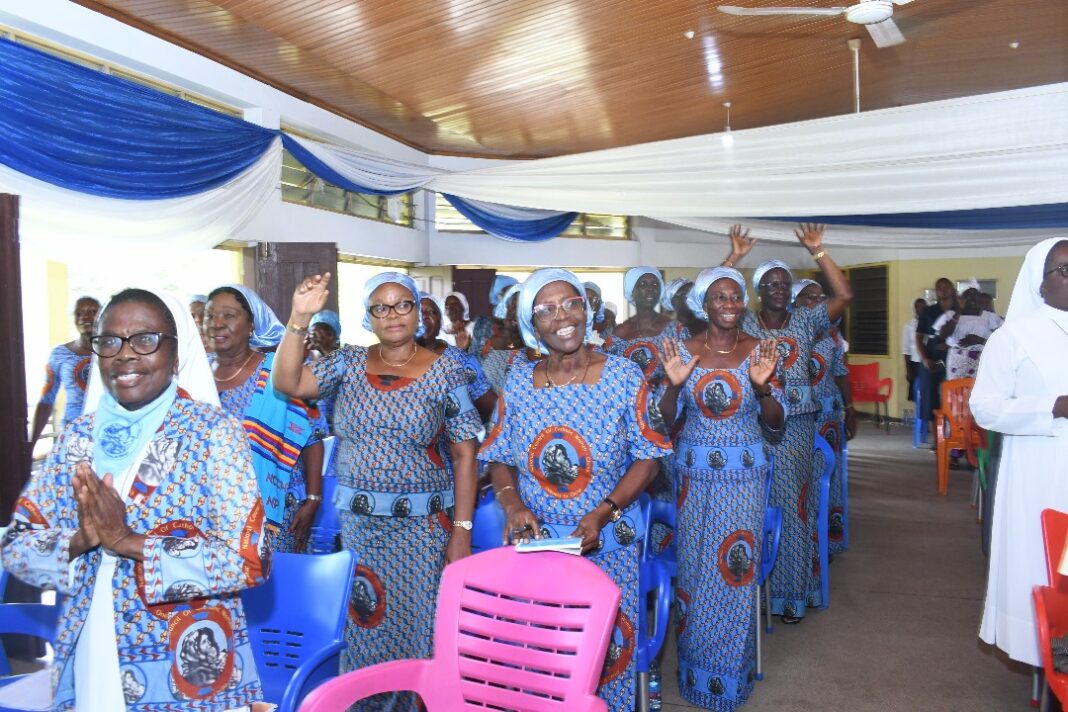The District Chief Executive of Afigya Sekyere South, Mrs. Catherine Perkline has encouraged women in Ghana not let anyone intimidate them because of their gender but be firm and strong.
Speaking at a Workshop organised by the National Council of Catholic Women (NCCW), Ghana, she advised Ghanaians not to take advantage of people they thought were very weak.
The NCCW organised the workshop on Domestic Violence and Discrimination against women in Ghana at the Konongo-Mampong Pastoral Diocese, Jamasi in the Ashanti Region.
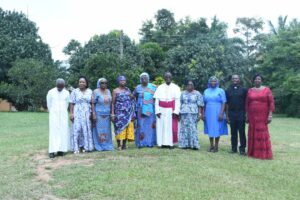
The Most Rev. Joseph Osei-Bonsu, Catholic Bishop of Konongo-Mampong Diocese and Mrs. Esther Apraku Nyarko, the Metropolitan Director of Social Welfare for the Kumasi Metropolitan Assembly and a guest speaker, graced the one-day workshop.
Women from various denominations in the area and Religious Women from Religious Congregations were in attendance as well as Mrs. Faustina Koomson Afrifah, a legal practitioner with the Ghana Revenue Authority, and Sr. Theodore Adzayawo, SMMC, General Secretary and Representative of the Conference of Major Superior Religious – Ghana.
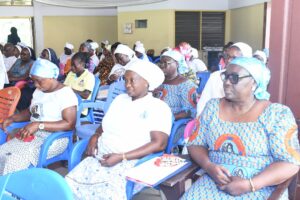
Bishop Osei-Bonsu stated that domestic abuse actually damages families and lamented that victims were frequently unwilling to report these problems for fear of becoming victims themselves.
He also mentioned that domestic abuse in relationships, whether they be current or past, was illegal in Ghana and appealed to them to raise awareness about the need to report domestic abuse.
Addressing the women, Mrs. Apraku Nyarko said discrimination was when someone was treated worse than others due to their sexual orientation, gender, or race while domestic violence, on the other hand, was defined in Ghana as abusive acts that take place in families and intimate relationships.
She mentioned that there were different types of domestic abuse and that people were sometimes reluctant to disclose such incidents because of their religious beliefs, social standing, or immediate relatives.
She reiterated that intimidation, fear, and the inability to disclose victim’s experiences with others were the results of discrimination and domestic abuse, adding, along with power imbalances, particularly male dominance, which contribute to the rise in domestic violence, the victim may also be traumatised and tense.
According to her, there were three main factors which contribute to domestic violence: social media, betrothals, and exposure to pornographic materials.
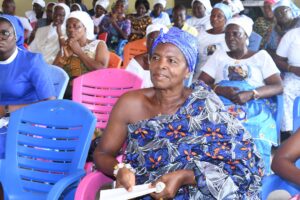
She suggested that parents should raise and educate their male offspring to know that they should never approach or bother women, no matter how provoked they may be.
She also suggested that in order to combat discrimination and domestic abuse, there should be robust sensitization programmes to model productive dialogues, brainstorming sessions with results-oriented objectives, and awareness-building at all levels and institutions.
A battle for gender equality is equally necessary. She posed a challenge to the council, asking them to devise plans for locating victims of domestic abuse and assisting them via the police and DOVVSU.
On behalf of the Conference of Major Superior Religious – Ghana, Sr. Adzayawo stated that in order to prevent domestic violence, religious organisations were actively engaged in teaching children, particularly girls, moral values and life skills.
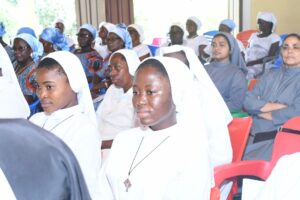
This, she noted helps these women to become less dependent on their husbands, saying, the Religious were making every effort to instruct and prepare the men to take good care of and treat their spouses with dignity.
Widowhood rights, the outlawing of female genital mutilation, and other women’s rights are causes that religious women support. The female religious leaders, she continued, are living examples and sources of hope for the weak in society.
Additionally, by overseeing hospitals, schools, and other establishments, they represent God’s presence among his people. According to Sr. Theodore, there are instances when financial or legal barriers prevent religious organisations from providing much help to victims of abuse or hardship.
She advocated for increased cooperation with all other women’s organisations as well as increased advocacy for rural residents in the areas of violence and prejudice. Regardless of religious affiliation, coalition building is necessary to combat prejudice and domestic abuse while promoting the worth of all women.
Speaking on the significance of using the legal system as a protection mechanism Mrs. Koomson, said the 1992 constitution guarantees everyone in Ghana the right to fundamental human rights and individual freedoms.
Domestic violence, she noted, has a significant impact not only on the victim but also on friends, family, coworkers, other witnesses, and the community as a whole, adding that regular exposure to domestic violence in the home teaches children that violence is normal and puts them at risk for a variety of social and health issues.
According to her, there is evidence of domestic abuse if your partner makes fun of you in public, minimizes your accomplishments, or uses threats or intimidation to coerce you into doing something.
In an effort to lessen the incidence of domestic violence, the Domestic Violence Act 2007 was passed. She urged victims or other interested parties to report these incidents to the Social Welfare offices or the Domestic Violence and Victim Support Unit (DOVVSU).
One way to assist victims of domestic abuse, she stated was to listen to them and show them that you believe in them, so they realize they are not alone. Regardless of the abuser’s status, report such situations to the appropriate authorities as domestic violence offenders are subject to legal penalties. Reduce domestic abuse by being each other’s keeper.
The National President of the Council, Mrs. Cecilia Asobayire, stated that the NCCW’s objective is to provide women with advocacy, knowledge, and education so they can discover themselves as individuals while fulfilling their evangelizing work.
She stated that the Council also enhances participants’ ability so that they may subsequently educate their groups and communities throughout Ghana about gender-based violence and discrimination against women.
She implored the council to work with religious institutions to lower the incidence of domestic violence.
Mrs. Francisca Owusu, the Konongo-Mampong Diocesan President of the Women’s Council, expressed gratitude to everyone who attended and thanked the Council for holding the programme in the Konongo-Mampong Diocese.

